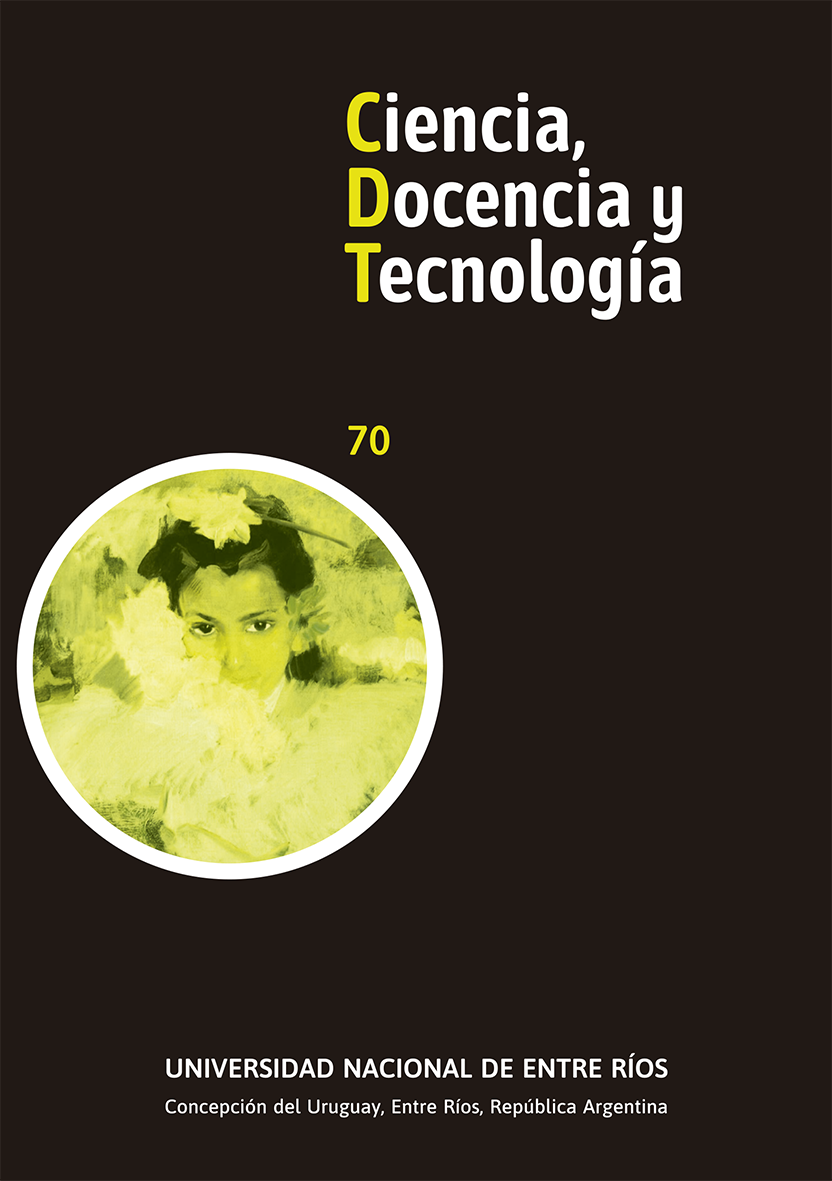Abstract
In this paper we focus on scientific evaluation and analyze the effective and possible ways of hierarchizing knowledge mobilization. Then, we ask ourselves: How are knowledge transfer and/or mobilization activities measured, and what weight do these activities have over the total of legitimate research work at the time of evaluation? Taking as an empirical basis a corpus of evaluation grids of the Scientific and Technical Research Council (CONICET) of Argentina from the year 2020 with which candidates for admission to the Scientific Researcher Career (CIC) of four evaluation commissions were assessed: Physics, Biology, Social Sciences and Technological and Social Development, the objective is to show in a comparative way the relative weight that each commission assigns to the different dimensions with which the scientific-technological trajectory of an applicant is evaluated, emphasizing the forms adopted by the evaluation of knowledge mobilization. The article shows that the problem of measurement occurs at two levels and problematizes its implications: firstly, the low relative weight of this type of activities in the overall evaluation of a career and, secondly, the difficulty in defining what is understood or recognized as legitimate when evaluating the mobilization of knowledge.
References
AKSNES, D. y Rip, A. (2009). Researchers’ perceptions of citations. Research Policy, 38(6), 895-905.
BEIGEL, M.F.; Bekerman, F.A.; Algañaraz Soria, V.H.; Baranger, D.; Bayle, P.A.; Erreguerena, F. y Salim, R.B. (2019). Culturas evaluativas: Impactos y dilemas del Programa de Incentivos a Docentes-Investigadores en Argentina (1993-2018). Buenos Aires: CLACSO.
CLARK, K. y Fujimoto, T. (1991). Heavyweight product managers. McKinsey Quarterly, (1), 42-60.
DE RIJCKE, S.; Wouters, P.; Rushforth, A.; Franssen, T. y Hammarfelt, B. (2016). Evaluation practices and effects of indicator use—a literature review. Research Evaluation, 25(2), 161-169.
E3M-PROJECT (2012). Needs and constraints analysis of the three dimensions of third mission activities. www.e3mproject.eu/docs/Threedim-third-mission-act.pdf
FERNÁNDEZ ESQUINAS, M.; Catalán, C. y Vielba, I. (2011). Evaluación y política científica en España: el origen y la implantación de las prácticas de evaluación científica en el sistema público de I+D (1975-1994). En T. González de la Fe y A. López Peláez (coords.), Innovación, conocimiento científico y cambio social. Ensayos de sociología ibérica de la ciencia y la tecnología (pp. 93-130). Centro de Investigaciones Sociológicas (CIS).
GUSTON, D. (2000). Retiring the social contract for science. Issues in Science and Technology, 16(4), 32-36.
KALTENBRUNNER, W. (2017). Quantifying ‘output’ for evaluation: Administrative knowledge politics and changing epistemic cultures in Dutch law faculties. Science and Public Policy, 44(2), 284-293.
LUNDVALL, B. (1988). Innovation as an interactive process: from user-producer interaction to the national system of innovation. En B. Lundvall, The Learning Economy and the Economics of Hope (pp. 349-369). Anthem Press.
MOLAS-GALLART, J. y Castro-Martínez, E. (2007). Ambiguity and conflict in the development of ‘Third Mission’ indicators. Research Evaluation, 16(4), 321-330.
POLANYI, Michael (1958). Personal Knowledge: Towards a Post-Critical Philosophy. University of Chicago Press.
SÁNCHEZ-BARRIOLUENGO, M. (2014). Articulating the ‘three-missions’ in Spanish universities. Research Policy, 43(10), 1760-1773.
MENÉNDEZ, L. (2014). La evaluación de la ciencia y la investigación. RES. Revista Española de Sociología, (21), 137-148.
SAREWITZ, D. (2016). The pressure to publish pushes down quality. Nature, 533(7602), 147-147.
SPRU (2002). The Economic Returns to Basic Research and the Benefits of University-Industry Relationships.
VICENTE, M. y López Bedogni, G. (2022). Ciencia, tecnología y demandas socio-productivas: los programas RIOSP e ImpaCT.AR. Ciencia, Tecnología y Política, 5(8), 076.
WHITLEY, R. (2007). Changing governance of the public sciences. En R. Whitley y J. Gläser (eds.), The Changing Governance of the Sciences (pp. 3-27). Dordrecht: Springer.
ZUCKERMAN, H. y Merton, R. (1971). Patterns of evaluation in science: Institutionalisation, structure and functions of the referee system. Minerva, 9(1), 66-100.

This work is licensed under a Creative Commons Attribution-NonCommercial-ShareAlike 4.0 International License.
Copyright (c) 2024 Mauro Alonso, Judith Naidorf

